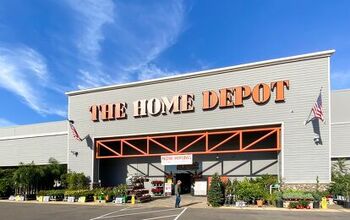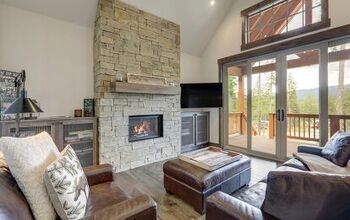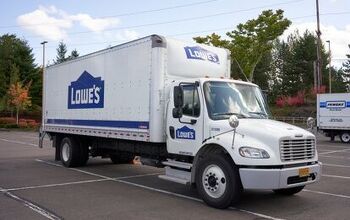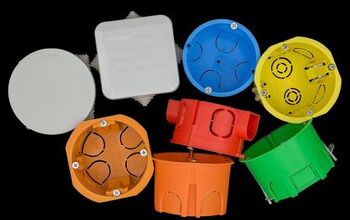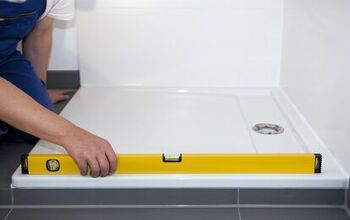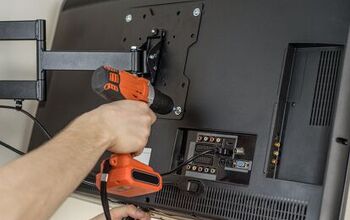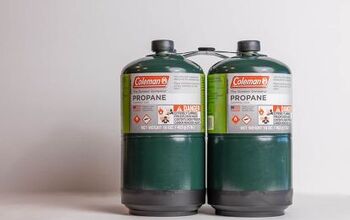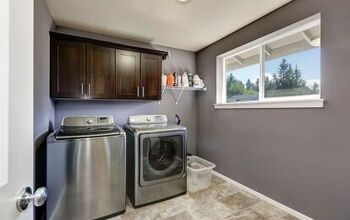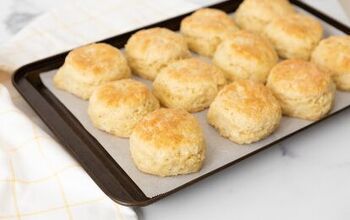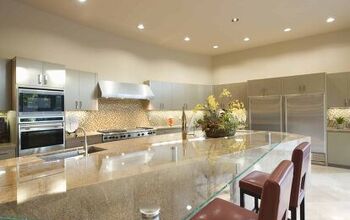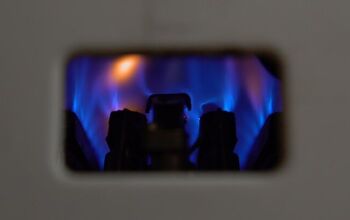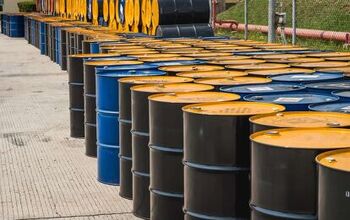Should You Keep Or Replace Cast Iron Radiators?

There are all sorts of methods used to heat houses, from old-school wood stoves to state-of-the-art electric smart systems. Cast iron radiators are one type of home heater that can bring a rush of memories to many homeowners. But when your cast iron radiator is on the fritz, you might wonder if you should keep it or replace it with a different type of radiator altogether.
Cast iron radiators are great to keep if you are heating a large room. They are also great at retaining heat. These radiators are, however, slow to heat up and are costly to purchase and replace. They also take up a lot of space. If you decide to replace your cast iron radiator, steel and aluminum radiators are common alternatives for those looking to replace cast iron radiators.
There are many factors to consider when you start to consider what time of radiator you should have in your home. Before you decide whether or not you should swap out your cast iron radiators with a different type, you should know how long your radiator is likely to last.
How Long Do Cast Iron Radiators Last?
Cast iron radiators, on average, will last about 20 years. Some, if properly maintained and used with care, can last twice as long and up to 50 years.
With that said, If your radiator is reaching the 20 year mark, you are likely to start experiencing some issues. This is when you might need to start weighing the pros and cons of keeping cast iron or choosing a different type of radiator.
Reasons To Keep And Replace Cast Iron Radiators
If your radiator is on the fritz or are wondering if it might be a good time to swap out the old heating system for a modern one, you might think it’s time to get rid of your cast iron radiator. While this is certainly an option, you should also think about what you will be giving up when you get rid of your old iconic heating system. When deciding if you should keep or replace your cast iron radiator, you need to know all the pros and cons, and then decide accordingly.
Reasons To Keep Cast Iron Radiators
Resist wear and tear
One of the best reasons to keep a cast iron radiator is the fact that they are some of the most durable types of heating elements ever made. After all, you are likely talking about replacing a machine that is older than you are in many cases. Cast iron material is incredibly long-lasting and very durable. It does not easily dent or damage.
These radiators are also relatively easy to maintain on a superficial level. While they do require some upkeep, you should be able to easily clean them yourself.
Great For Larger Spaces
Cast iron is a very strong conductor, and the material itself is dense and thick. This makes cast iron radiators a good option for larger spaces, like grand living rooms or even large barn spaces with heating elements. Cast iron radiators are great at retaining heat. This means they can keep larger spaces at a warm temperature once the temperature is achieved.
Other heating methods lose heat quickly, resulting in the heat constantly having to be kicked on to keep the same temperature.
Consistently Spread Heat
Another perk to keeping your cast iron radiator is its ability to keep a consistent temperature in the room. The way a cast iron heating element works is similar to the concept “slow and steady wins the race.” While it might take a bit of time for the room to reach its desired temperature, once it does, it is easy to maintain, leaving the room with a more consistent temperature, rather than frequent dips and peaks.
Spread Heat For a Long Time
Another perk of cast iron radiators is they are the gift that keeps on giving. Because they are such great conductors and made of thick metal, they continue to give off heat even once they are turned off. They are by no means providing hours of endless free heat.
They are very helpful, however, in that you can turn off a cast iron radiator and be ensured the heat will not immediately and dramatically decline. Instead, you will have a slow and steady decrease. This allows you plenty of time to head out or to get bundled and warm under the covers.
Great For Older Period Homes
Another reason people often choose to keep cast iron radiators rather than replace them is that they work well with the design and style of the home. These types of radiators are common in older homes that often have other original fixtures and moldings. This is usually conducive to a more classical and historical design aesthetic.
If you replace your cast iron radiator with a modern-looking aluminum one, it might throw off the entire look of the room. Sometimes cast iron radiators provide not only heat, but also a design element to the room they are in.
Reasons To Replace Cast Iron Radiators
Can Be Less Energy Efficient
One of the downsides of cast iron radiators is they can be less energy efficient. Sure, they stay warm after they have been turned off, but they take a lot of energy to heat. There have also been significant improvements in heating systems as far as energy is concerned. In this world where energy bills can skyrocket without notice, it is essential you factor this into your decision.
You may want to get a consultation to see how much you could save with a different type of radiator or heating system. It may, over time, pay for itself.
Takes Longer To Heat A Room
Another downside to cast iron radiators is they can take quite some time to heat a room. Newer aluminum and steel radiators heat quickly, but cast iron takes much more energy and time to heat up. This means that you can be left waiting for quite some time in a cold room while you wait for the radiator to slowly warm your space.
Consume Prime Real Estate In The Room
While some people enjoy the look of cast iron radiators, the fact remains that they often take up a lot of space. One of the biggest downsides to cast iron radiators is the fact that they protrude out from the wall, which often makes it impossible to use much of the area around it.
You might think you can tuck a couch or other piece of furniture near the radiator, but don’t. Not only would that block the heat from reaching other parts of the room, but much of the heat would be first absorbed into the furniture, wasting the heat. If you have space issues in your home, you may want to consider a more slender heating method.
Expensive
Cast Iron radiators are quite pricey. This heavy metal structure might look great, but it comes at a high price point. If your radiator needs replacing, you might find that the cost to replace it with a new cast iron radiator simply is not in your budget. This is when you might want to consider another type of radiator.
What Should You Replace Your Cast Iron Radiator With?
If you decide it is time to move on from your cast iron radiator to something new and modern, you have several options. The two most popular radiators used to replace cast iron radiators are steel and aluminum. Just like cast iron, these two radiator types have their own pros and cons.
Steel Radiators
Steel radiators are slightly less expensive than cast iron radiators, and also heat up a bit faster. They can also be designed in custom ways that take up much less space than cast iron radiators, if you are worried about space. They can also handle extreme high temperatures and are easy to clean.
Steel radiators are, however, also quite pricey. While they might heat up a room faster than cast iron, they still take more time than other radiators, like aluminum.
Aluminum Radiators
Aluminum radiators are a great option for those who want their home to heat fast. These radiators heat quickly, and they are also often very small and sleek. They take up much less space than cast iron radiators and come in all shapes and designs. Perhaps most importantly, they are comparatively inexpensive. They are one of the most economical radiator options on the market.
While they are cheaper and heat a room quickly, they are much less effective at retaining heat. This means they need to be kept on fairly often, or the room will quickly cool off. These radiators work best for homes that need occasional heat.
Final Thoughts On Keeping Versus Replacing Your Cast Iron Radiator
Cast iron radiators are great to keep if you are looking to achieve a historical and classic design aesthetic. They are also very great at heating large spaces. Because they are great solid conductors, they retain heat for a long time, even once they are turned off.
These radiators are, however, quite expensive. They also tend to take up a large amount of space in a room and can take quite some time to heat a room. If you are looking to replace your cast iron radiator, steel and aluminum radiators are popular alternatives.

Tom Gaffey is an expert writer who currently resides in Washington D.C. Tom has a passion for real estate and home improvement writing, as well as travel and lifestyle writing. He lived the last twelve years in Hawaii where he worked closely with luxury resorts and event planners, mastering his knowledge of aesthetics and luxury products. This is where he found his passion for home improvement and a keen interest in DIY projects. Currently, Tom resides in Washington D.C, and also working on his debut fiction novel.
More by Tom Gaffey










